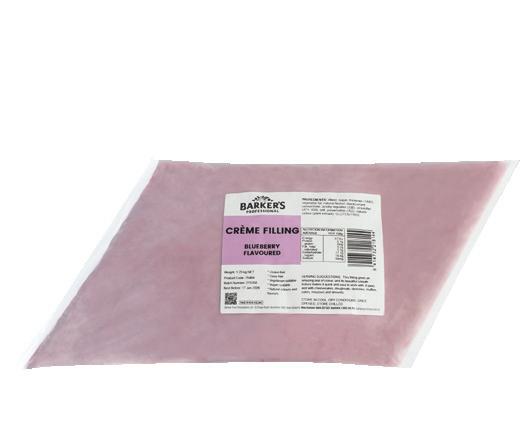








ental health is an essential component of wellbeing in later life, with increasing evidence linking oral health to wider medical outcomes. Poor oral hygiene has been associated with conditions such as heart disease, diabetes complications, and respiratory infections. It can also contribute to malnutrition and reduced quality of life, making proactive oral care a critical part of resident health management.
Unlike previous generations, today’s older adults are retaining their natural teeth for much longer. While this reflects improvements in dental care over a lifetime, it also presents new challenges, as natural teeth require ongoing maintenance to prevent decay, gum disease, and discomfort. Regular check-ups, preventative treatment, and daily oral care are therefore vital to maintaining both health and quality of life.
The sector is responding by embedding oral health into wider wellbeing strategies. On-site dental visits, mobile clinics, and staff training are increasingly common, ensuring
early detection of issues and reducing the risk of avoidable hospital admissions. These measures also support nutrition and confidence, key factors in sustaining independence and dignity.
From a business perspective, visible investment in oral care strengthens reputation and trust. Families and prospective residents view proactive dental health management as a sign of quality and commitment, while operators benefit from improved health outcomes and reduced care complications.
Dental health is no longer a peripheral consideration but a central part of overall care. With residents keeping their teeth longer than ever before, a strong focus on oral health is both a clinical necessity and a mark of excellence in service delivery.
Tania Walters, Publisher tania@reviewmags.com
PUBLISHER: Tania Walters
GENERAL MANAGER: Kieran Mitchell
EDITORIAL DIRECTOR: Sarah Mitchell
EDITOR-IN-CHIEF: Caitlan Mitchell
EDITORIAL ASSOCIATES: Sam Francks, Jenelle Sequeira
ADVERTISING SALES: Caroline Boe
SENIOR DESIGNER: Raymund Sarmiento
GRAPHIC DESIGNER: Raymund Santos
Retail 6, Heards Bldg, 2 Ruskin St, Parnell, Auckland New Zealand P: +64 3040142 Email: edit@reviewmags.com

Radius Residential Care Limited has officially announced that the Westland District Council has granted approval in principle for the development of a new integrated aged care community on part of Hokitika’s former racecourse site.
From volunteer housekeeper/laundry to qualified healthcare worker, Fernanda (Nanda) Alvares E Silva proves that dedication and upskilling can open doors to new opportunities.
For Arvida, 2025 has so far been a year of development and expansion. The South Island has served as a canvas for the village provider’s plans, serving seniors in the south with modern innovation and high-quality care.
Line dancing fever has taken over at Arvida Knightsbridge community in Windsor Park, Auckland, where the sounds of heels tapping on wooden floors has become the new normal.
Data released by the Australian Dental Association earlier this year found that over half of senior citizens delayed dental treatment, highlighting affordability as the most common reason.
Oral healthcare is one of the biggest out-of-pocket health expenses, and the system is failing too many Australians, according to Australian Healthcare and Hospital Association Limited’s (AHHA Ltd) Chief Executive Tony Farley.






24 Blood Connections to Alzheimer’s
The ADAPT (Alzheimer’s Disease Diagnosis and Plasma p-Tau217) team, led by Professor Jonathan Schott and Dr Ashvini Keshavan at University College London (UCL), has evaluated whether a test measuring the protein p-tau217 in blood can help to diagnose Alzheimer’s disease earlier and more accurately than current methods.
Allowing residents to have a say in their dietary preferences will help to battle malnutrition throughout aged care.
For seniors, there are various ways they can enjoy eggs on the menu. More than just an ingredient, eggs are an anchor for health and wellbeing, especially for seniors with restricted diets.
30 Texture-Modified Innovation
Sam Bridgewater, Co-founder and CoCEO of The Pure Food Co., said that protein is a critical component for maintaining strength, mobility, and independence as seniors age.
Afternoon tea creates a delightful and engaging way for residents to connect with others, reminisce, or to enjoy a sweet treat. It is also an opportunity for guests to relax and gather with friends and family, served in a calming environment.


Third Age Health has continued to lead the integration process of new standards to better support quality care for older aged New Zealanders.
Third Age Health (TAH) has led the development of a new standard for aged care, the ‘Residential Care
The latest data from the FMA KiwiSaver Report 2025 has shown how financial habits and lifestyles of the over-65s are changing.
Instead of cashing in their entire KiwiSaver savings once they hit 65, members are increasingly drawing down their KiwiSaver funds gradually (decumulating) and using it as an income stream.
As a whole, they’re also withdrawing less money, in fewer transactions.
Total withdrawals by
Medical Service Provider Standard’, aimed at improving the quality and consistency of healthcare for older New Zealanders.
The new aged care standards set out to provide a consistent framework for healthcare providers, promote patient-centred
practices, and ensure services for older people align with current health needs.
These standards address long-standing gaps that fall outside traditional primary care guidelines. Older New Zealanders often face fragmented care, service delays, and poor

members aged over 65 decreased by 1.3 percent to just under NZD 3 billion, while the number of withdrawals fell from 36,652 to 31,470, a 14.1 percent decline.
These declines are in spite of there being more members aged over 65 and eligible to withdraw.
continuity between general practice, aged residential care, and home support.
“Third Age Health is committed to advancing the level and consistency of general practice provided in aged residential care across New Zealand. These standards respond to a gap and need as current standards have not consistently addressed the increasingly complex health, functional, and psychosocial needs of older people in residential settings”, said Tony Wai, CEO, Third Age Health.
“We’re dedicated to putting appropriate standards in place where other aged care frameworks are lacking. Read more online
For years, the accepted wisdom has been that when you reach 65, it’s time to move your retirement savings into a conservative fund, something lower risk and more stable.
However, your investment strategy at retirement shouldn’t be based solely on your
age, but on when you actually plan to use the money.
“If you’re not drawing down your KiwiSaver savings all at once, and according to this FMA Report, many people aren’t, you could still have 20 to 30 years ahead of you. That’s a long time to stay too conservative, and potentially a big opportunity cost from not staying with a growth or balanced fund for longer,” said Stephanie Whittaker, a Generate Wealth Adviser.
It’s also a great argument for getting KiwiSaver advice at all stages along the way, not just when you first sign up.
Read more online

STIG has reiterated its warning of a growing retired generation within the next ten years, and facilities currently available.
Whilst reform of the Retirement Villages Act remains on the agenda, Executive Director, Senior Trust Retirement Village Income Generator (STIG), John Jackson, said New Zealand’s ageing population continues to drive unprecedented demand for senior living.
Estimates are that there will be a shortfall of almost 8,400 retirement village units by 2033.
At the same time, building consents in 2024 saw fewer than 1,700 new units approved nationwide. The gap between supply and demand remains significant, supporting long-term investment opportunities.
Jackson said that this imbalance creates confidence for investors.
“We are not in a market of oversupply.
Quite the opposite. Villages are looking to expand, operators need capital, and investors are seeking income. That alignment is powerful.”
STIG has consistently positioned itself as a specialist lender to experienced operators in the senior living and aged-care sector. By focusing on secured lending, it ensures that investor funds are tied to tangible, long-term assets.
“In every discussion, we come back to the same point,” Jackson added.
“Demand is strong and our role is to identify opportunities while supporting muchneeded housing for older New Zealanders. Legislation may evolve, but demographic fundamentals remain sound.”
Senior Trust Retirement Village Income Generator
Limited is a specialist lender to New Zealand’s senior living and aged care sector.
Read more online
Arvida's Bethleham Shores has been praised at the recent New Zealand Architectural Design Awards for its unique golf shed.
Taking a big swing on an original and uniquely designed golf shed has paid off for Arvida’s Bethlehem Shores village, with the win of a Regional Award at the New Zealand Architectural Design Awards.
Winning the category of Architectural Spaces and Structures, the Arvida Bethlehem Shores golf shed provides transport accessibility for residents of the Bethlehem Shores community. Like the popular villas in the village, the structure’s colour palette includes earth
tones and reflects the surrounding environment.
At 91m2, the shed is designed to store and charge six golf carts. Sustainability is a key aspect with solar panels attached to the structure, which enable the charging of golf carts using renewable energy.
“We’re thrilled that the design of our golf cart shed has been recognised with this award. What began as a practical idea has become a great design and amenity outcome for Bethlehem Shore, making life easier and more enjoyable for our residents. It’s a fantastic example of thoughtful design delivering real value. A huge thank you to our design team CTArchitecture, project managers, and construction team for their hard work in bringing this to life,” Arvida Head of Design Blair Cressy said.
Read more online

UK | The adult social care sector is reportedly unprepared for the Terminally Ill Adults Bill ahead of its second reading in the House of Lords.
Care England, the largest representative body for independent adult social care providers, has stressed that the adult social care sector urgently requires a clear roadmap for the implementation of the Terminally Ill Adults (TIA) Bill. Care England takes no position on the principle of the Bill itself. However, as the leading voice for adult social care providers, it has a duty to ensure the concerns of the sector are heard. Unless implementation

is carefully planned, the Bill could introduce challenges for providers and staff supporting people in care.
Ahead of the Bill’s second reading in the House of Lords on 12 September, Care England surveyed providers across the country to assess preparedness.
The findings point to a sector that is largely underconsulted, uncertain, and unprepared for the Bill in its current form.
“Our role is not to debate the principle of the Terminally Ill Adults Bill, but to ensure the care sector is ready should the legislation proceed. In its current form, and without clear guidance

from the Government, the Bill could present significant challenges for providers and staff working with people in care settings,” said Professor Martin Green OBE, Chief Executive of Care England.
“Engagement with the sector so far has been minimal, as our survey demonstrates. What is needed now is not rhetoric, but a precise, coherent, and actionable roadmap for delivery. Read more online
now locally available from our NZ Warehouse

Sterri-Matt® PPE Stations & Dispensers are the ultimate IPC solution with over a 100 versatile combinations to enhance your infection control programs

we also offer a wide range of Quad Glove Dispensers








UK | BGS and the Association of Ambulance Chief Executives have announced their new framework to manage falls among seniors.
The Association of Ambulance Chief Executives (AACE), in collaboration with the British Geriatrics Society (BGS), will launch its new Falls Governance Framework during the UK’s national Falls Prevention Awareness Week, from 15th to 19th September 2025.
This new national framework is designed to support integrated, person-centred care for older people and

those living with frailty who have fallen or are at risk of falling. It sets out a clear and coordinated approach for ambulance services and system partners to respond to falls in community settings,
aligning with the NHS Long Term Plan’s vision to shift care from hospital to home, from analogue to digital, and from reactive treatment to proactive prevention.
“Falls are one of the most common reasons
for 999 calls and a leading cause of injury, hospitalisation and loss of independence among older people,” said Anna Parry, Managing Director of AACE.
Read more online


Radius Residential Care Limited has officially announced that the Westland District Council has granted approval in principle for the development of a new integrated aged care community on part of Hokitika’s former racecourse site.
he proposed development will be in collaboration with East West Developments Limited, forming part of the broader Crestview Estate. It will bring much-needed aged care services to the West Coast, combining a state - of- the - art 80 - bed care facility with a 50 -villa retirement village and home care services.
Radius Care’s Chief Executive Officer, Andrew Peskett, said the approval marks a major step in the company’s long - held ambition to serve the Coast.
“Radius Care has been keen to expand to the West Coast and has considered sites previously, but none have been suitable. The old racecourse site is ideally placed for this development, and we are excited about becoming an integral part of the Hokitika community,” Peskett said.
“Our team provides high-quality, compassionate care across New Zealand, and we look forward to bringing our specialist health services to this region.”
Westland Mayor Helen Lash welcomed the announcement.
“This project is fantastic news for Hokitika and the wider Westland district. It will provide our seniors with modern, locally delivered care options and create employment opportunities during construction and once the facility is operating,”
Mayor Lash said.
“The Council is pleased to support a development that aligns with our vision for a vibrant, connected community.”
The new care home will offer a full continuum of care, including rest home, hospital and specialised dementia care, allowing residents to age in place even as their needs change. A separate home care hub will be based on-site to deliver Radius Care’s home care services to clients living independently in the region. The adjacent village will comprise 50 villas, giving retirees the option of modern, independent living with the reassurance of on-site health services.

We’re offering 50% off selected apprenticeships from 1 October until 30 November 2025
Enrolments are now priced at just $1,000 (incl. GST)*, a saving of $1,000 for the following programmes:
NZ Apprenticeship in Diversional Therapy
NZ Apprenticeship in Advanced Care and Support
Also, apply for Apprenticeship Boost and access $500/month (excl. GST) for your eligible first-year apprentices.
*subject to eligibility – refer to website for details
Careerforce.org.nz/aged-care-promotion2025

From volunteer housekeeper/laundry to qualified healthcare worker, Fernanda (Nanda) Alvares E Silva proves that dedication and upskilling can open doors to new opportunities.
hank you,’ ‘how are you’ and ‘I love you’ was the extent of Fernanda Alvares E Silva’s English when she arrived in New Zealand 10 years ago from Brazil.
Today, Nanda proudly celebrates graduating with her Level 4 Advanced Care and Support Apprenticeship. Supported by her employer, Rangiora’s Bainswood on Victoria, and work-based training provider Careerforce, the health care assistant has not only advanced in her career but also mastered fluency in English.
Ten years ago, Nanda followed her partner to Rangiora, near Christchurch,
and set out to find a job the only way she knew, by knocking on doors. With no English, the challenge was immense. It was Bainswood on Victoria, that finally gave her a chance by offering her a volunteer role that she asked for.
Bainswood on Victoria, part of Rangiora Lifecare is a retirement/nursing home with facilities for independent residents and those requiring hospital or dementia level care.
“I really wanted to learn English and be with people,” says Nanda. “My clinical manager gave me two weeks to improve my English and said then we’ll talk again.
“I was put to work as a housekeeper learning the laundry and cleaner roles. For two weeks I was just learning, by talking to the staff and the residents. They helped me by counting one, two, three.. then the days of the week. They asked me about my life, and I tried to talk to them. I used a small notebook to write all the words from the day and translate later at my house with my partner. Also, a laundry staff member helped me to understand what everyone was saying by trying to repeat and explain everything very slowly for me. After two weeks I was asked to sign a paper, ‘This is your contract - we’re going to give you a job.’ So, I got my first part-time casual cleaner role. For me it was amazing - my first contract. I cried.”
After a month, Nanda secured a permanent housekeeper role and began a Level 2 cleaning qualification with Careerforce. She completed the programme on paper, translating materials between Portuguese and English, while attending all classes run by her employer.
Her Level 2 Certificate in Cleaning was followed by a Level 2 Certificate in Health and Wellbeing, shortly followed by a Level 3 Certificate in Health Assistance.
Nanda had been a university educator in Brazil, training teachers prior to coming to New Zealand. “I knew who I was in Brazil, but I wasn’t sure who I was in New Zealand. People told me, ‘you are just a caregiver.’ I thought, I’m not just a caregiver. I wanted to challenge myself and prove that I am a valuable person with a life of experience and my background is extremely important as well.”
Nanda took every opportunity to improve her English, initially attending a language school for people with English as their second language once a week, and later having a tutor visit her for one hour a week.
Managers at Bainswood knew Nanda loved a challenge and wanted to learn, and offered her the opportunity to complete the Level 4 Apprenticeship in Advanced Care and Support.
The Apprenticeship is a 20-month workbased learning programme designed to give staff the skills required to provide personcentred care and support to people with complex needs. Each apprentice is allocated a Careerforce Advisor who acts as ‘coach’
providing one-on-one support according to their needs. Nanda was assigned to Christchurch-based Careerforce Advisor Vicki Mead.
“The level 4 goes a little bit deeper - It makes you more confident in your role and in your ability to do your job. I understand so much more about what’s going on around me. It’s given me confidence to be a better caregiver,” says Nanda.
“It helps you think about the many different ways you can respond to the residents, the way you talk to your colleagues. There are so many ways the course helped me. Each paper helped to build my confidence.”
In her current role, Nanda works as a Med Com, being responsible for assisting residents with taking their prescribed medications. She also sometimes helps with the diversional therapy activities which she loves.
Nanda says she found the Careerforce learning materials valuable, as were the monthly workshops run by her Careerforce Apprenticeship Advisor, Vicki.
Nanda adds, “My growth and advancement in my journey was only possible with the help of my family in New Zealand and all the staff at Bainswood on Victoria, Housekeepers, Kitchen staff, Carers, DTs, ENs, RNs, Clinical Manager, House Manager and the entire Careerforce team who supported me in different ways.”
With the Level 4 Advanced Care and Support apprenticeship all complete, Nanda is keen to keep learning, and says she would like to be an enrolled nurse one day.
To help ease the burden of training costs across the Aged Care sector, Careerforce is offering 50% off its Advanced Care and Support Apprenticeship and Diversional Therapy Apprenticeship enrolments from 1 October until 30 November 2025. Enrolments are priced at just $1,000 (incl. GST), a saving of $1,000 (Incl. GST), subject to eligibility.
For more information about Careerforce apprenticeships, visit www.careerforce.org.nz. Workplaces may also qualify for Apprenticeship Boost funding and receive $500/month for the first 12 months of each apprenticeship.
For Arvida, 2025 has so far been a year of development and expansion. The South Island has served as a canvas for the village provider’s plans, serving seniors in the south with modern innovation and high-quality care.

s the first slab of concrete is poured at Arvida’s Lincoln development, the official name of the new Living Well Community has been announced: Arvida Lincoln Plains.
The name was chosen after extensive research into the region by the Arvida team, valuable stakeholder feedback, team polling, and brainstorming sessions.

With more than thirty years of experience in the retirement village sector, Leigh Tabak has been named the new Arvida Lincoln Plains Village Manager. Having previously been in the role of Village Manager at Arvida Park Lane community in Christchurch for four years, Leigh is excited to help build a new retirement community and explains the meaning behind the name.
“It really speaks to the vast and beautiful Canterbury Plains and it encompasses the community we will be building here. There’s definitely an excitement building as the development starts to take shape and I’m looking forward to creating a vibrant Arvida Living Well Community in the region,” Tabak said.
Once completed, the community will include a range of retirement lifestyle options for over-65s, from independent living to care and support.
As earthworks and civil works are progressing on the development, the

Arvida Development team are expecting the first phase of villas to be completed by early 2026. Arvida Lincoln Plains will be located at 1506 Springs Road, Lincoln.
Earlier this year, Arvida officially opened another major development in the South Island. The ribbon was cut, speeches were made and the Christchurch Symphony Orchestra (CSO) played on during a ceremony recently to officially open the new care centre and Living Well Apartments at Arvida Queenstown Country Club.
The new development includes 29 stylish Living Well Apartments, offering one, two, and three-bedroom options with balconies or patios, lift access, and underground parking.
The brand-new care centre features 52 care suites and 10 dementia care suites. Designed around small ‘households,’ the care model provides 24/7 nursing support and a more personal, home-like environment.
Each care suite includes cooking facilities, from a small kitchenette to full kitchen. There are also shared dining rooms and lounge areas, as well as additional cooking areas on each floor.
The building has been architecturally designed to make the most of the stunning surrounding views. Residents can also enjoy access to an award-winning clubhouse with a swimming pool, spa, cinema, cafes, and more - reflecting Arvida’s commitment to care, wellbeing and independent living
Arvida Chief Executive Jeremy Nicoll said the team are proud to officially open the care centre and apartments complementent the popular established villas in the Arvida Queenstown Country Club retirement community.
“I know there’s going to be many, many residents who enjoy the amenity and the lifestyle options that we’ve now created in this beautiful community in Queenstown.”

Line dancing fever has taken over at Arvida Knightsbridge community in Windsor Park, Auckland, where the sounds of heels tapping on wooden floors has become the new normal.
mong the most dedicated are Ros Gebbie, who has been stepping it out for four years, and Valerie Terrice, who, with three years under her belt, never misses a beat. “I love any kind of dancing, we have a lot of laughter and it’s actually good for the brain,” Terrace said.
A typical routine might call for four or five moves - grapevine right, cross shuffle, walking forward, v step, and stepping over - requiring not just rhythm but a good deal of coordination and balance.
Whether it’s classic Jim Reeves country and western tunes or the group is doing
grapevines and v steps to the modern ‘A Bar Song (Tipsy)’ from Shaboozey, the enthusiasm continues, so long as there’s a beat to follow. Residents focus keenly on their footwork, eyes trained on the floor, but the occasional wrong step only adds to the fun.
The Friday intermediate classes in the community centre at Knightsbridge has grown so popular that it now draws residents from a neighbouring village, everyone eager to join the action and break a sweat.
“I used to think, why would anybody do it?” admitted Gebbie, now a selfconfessed convert who sometimes ventures to community meets.
“But once you come along you really get into it. I went up to Silverdale with my daughter and there were 60 people line dancing so it’s very popular.”
Arvida Knightsbridge resident Jean Fuller is nearly 89 and is among those still kicking up their heels, proof that age is no barrier when it comes to a good dose of country rhythm.
Terrace encouraged newcomers to take the plunge.
“Give line dancing a try, just come and watch to start with. We all had to start somewhere,” she said, noting the class owes much to a teacher who “pushes us”. By the end of each session, sneakers are scuffed and there’s some panting, but everyone leaves feeling lighter and limber.
For those who enjoy quieter activities, DIY projects have proven to be a popular
choice. For Arvida Mayfair resident Catherine Thomas, creating a cosy library space was her goal.
The 85-year old took the plans she had to her village neighbours and they agreed on the proposal for a “Book Nook”.
With the help of the village maintenance and housekeeping teams, Thomas moved shelving together and chose the perfect area for the nook in the community lounge. Having always considered the library as a safe space, Thomas said this is her way of contributing to the community.
She spent many weeks going through all of the books and organising them into alphabet dividers. Now with library stickers on each book, the Book Nook has become a quiet oasis for all residents to enjoy.


Whether you're looking to furnish a new build, renovate an existing property, or simply upgrade guest rooms or public spaces, our FF&E and Procurement services are designed to deliver exceptional results that meet your budget and timeline requirements.
Quality delivery is something our team understands intimately, we see through the installation of every item from sign-off to handover. Thorough planning and project management are so important in our business as well as an eye for detail and an ability to forward plan for any limitations ahead of time.
Statement iD strive to provide a seamless procurement service. Profiled above a recent procurement project - The Helier, Oceania.
Contact us to discuss how we can help you achieve your project goals. We are now based at new offices 8-10 Railway Street, Newmarket.
www.statementid.co.nz

Evidence has shown that poor dental health increases the risk of diabetes, heart disease and chronic malnutrition in older people, as well as embarrassment and social isolation.
The Ministry of Health suggested that, on average, one in four seniors aged over 65 will avoid visiting the dentist due to its cost.

hile it dropped to 17. 1 percent for those over the age of 75, the figure is still considered too high.
More than half of senior citizens living in aged care have also delayed dental treatment, according to new data that suggested affordability was the most common factor.
Of the 25,000 seniors surveyed, 64 percent of respondents said the cost of visiting the dentist was too high. This prompted industry advocate groups to push for the urgent introduction of a Seniors Dental Benefit Scheme.
Council of the Ageing Chief Executive Officer, Patricia Sparrow, said the statistics highlighted why seniors have urged for change from their elected officials.
“The number of seniors skipping vital dental treatment because they can’t afford it is ridiculously high. Good oral health is important for people of every age, and we know people across the board are struggling with the cost, but as we get older, the stakes get higher,” said Sparrow.
“Evidence has shown that poor dental
health increases the risk of diabetes, heart disease and chronic malnutrition in older people, as well as embarrassment and social isolation. Seniors are putting their health at real risk because they’re nervous they can’t afford to pay for the treatment they need.”
Sparrow said the Council of the Ageing has long advocated for the introduction of a Senior Dental Benefits Scheme to ensure that every senior can get access to the dental care they need.
“Every senior citizen, no matter what their age, should be looking at these statistics and asking their politicians why we don’t have a plan to introduce a Seniors Dental Benefit Scheme yet,” she added.
“Introducing a Seniors Dental Benefit Scheme is important for us all. Making sure seniors get access to the quality, affordable dental care they need will keep us healthier for longer, decreasing the burden on our public health care system and freeing it up for those who need it most.”
Sparrow added that introducing the Seniors Dental Benefits Scheme is the kind of prevention-focused policy seniors deserve from their politicians.
Oral healthcare is one of the biggest out-of-pocket health expenses, and the system is failing too many seniors, according to AHHH CEO Tony Farley.
e need national funding reform to include our oral health care system, not just more money, but smarter, fairer investment,” he said.
A new Issues Brief released by the AHHA Ltd’s Deeble Institute for Health Policy Research, Universal access to essential oral healthcare through a prioritysetting approach, outlines a clear, staged and evidence-based funding strategy to transition from ad hoc responses to a sustainable, equitable, and high-value oral health system.
“Seniors are currently paying more than 60 percent of oral health costs from their own pockets, totalling over $6.6 billion annually. The reality is that many people delay or skip care altogether because they simply can’t afford it. That’s not just bad for their teeth, it’s bad for their overall health, employment prospects and wellbeing,” Farley said.
The Brief calls for a nationally consistent, evidence-based approach

to defining essential oral healthcare, underpinned by a structured, prioritysetting framework such as the Assessing Cost-Effectiveness (ACE) methodology.
“This isn’t about reinventing the wheel. Other areas of healthcare already use cost-effectiveness tools to guide public investment. Oral health should be no different.”
The Brief recommended a suitable definition for essential oral healthcare, the implementation of a formal priority-setting approach, to integrate oral healthcare into health technology assessments (HTA) processes.
“Public dental programs have been stuck in a cycle of underfunding, long waitlists, and one-off schemes. We can’t keep patching the system. It’s time for a unified, long-term funding approach that actually works. This is about putting people first.”
Farley said the evidence is in, and better oral health access will lead to better health, fewer hospitalisations, and a more productive workforce, and that the government has an opportunity to act.

Seniors are currently paying more than 60 percent of oral health costs from their own pockets, totalling over AUD 6.6 billion annually.


The ADAPT (Alzheimer’s Disease Diagnosis and Plasma p-Tau217) team, led by Professor Jonathan Schott and Dr Ashvini Keshavan at University College London (UCL), has evaluated whether a test measuring the protein p-tau217 in blood can help to diagnose Alzheimer’s disease earlier and more accurately than current methods.

he first ADAPT trial location began recruitment in Essex Partnership University NHS Foundation Trust on 28 August 2025 with 19 additional specialist NHS Centres planned across the UK.
The trial will examine whether providing the blood test results to patients and their clinicians near the start of an assessment for memory and thinking concerns is able to aid diagnosis and guide decisions on further investigations and treatments. The study will recruit participants through NHS memory services and will include people from diverse geographic, ethnic and economic backgrounds, and those living with other health conditions to ensure the findings are relevant and inclusive of the broader population.
This landmark trial forms part of the Blood Biomarker Challenge, a multimillion-pound programme funded by Alzheimer’s Society, Alzheimer’s Research UK and players of People’s Postcode
Lottery. The initiative aims to determine if the blood test is accurate and reliable in a broad range of patients that would make it a trusted form of diagnostics in comparison with current methods. Alzheimer’s disease, the most common cause of dementia, is linked to the build-up of two key proteins in the brain called amyloid and tau. One of the most promising biomarkers in the blood, p-tau217, reflects the presence of both amyloid and tau in the brain. Emerging evidence suggests that blood tests such as plasma p-tau217 can detect these proteins as accurately as current methods such as amyloid PET scans and lumbar punctures. Although these blood tests are not standalone diagnostic tools, they could be used as part of as a wider clinical assessment to confirm the diagnosis of Alzheimer’s disease for people who already have memory or thinking problems. As a blood test has the potential to offer a less invasive, more accessible, and cost-

effective alternative to current specific tests for Alzheimer’s (PET scans or lumbar punctures), proving their utility in clinical practice could enable earlier and more equitable access to both diagnosis and future treatments across the NHS.
The ADAPT team have already assessed and validated the accuracy and performance of the p-tau217 blood test, which is now established in the National Hospital for Neurology and Neurosurgery’s NHS clinical laboratory. The team are now conducting a clinical trial aiming to provide evidence that the test is accurate, cost-effective and should be part of the standard of care more widely in NHS memory services.
The ADAPT study will recruit individuals who are referred to memory services with either mild progressive memory problems or early dementia. All participants will receive standard diagnostic assessments and care. Of the 1,100 planned participants, half will receive their blood
test results within three months of being assessed for the first time in their memory service, while the other half will receive theirs after 12 months.
The team will assess whether providing results earlier helps speed up the diagnosis, guide decisions about further investigations, and influence how both patients and clinicians interpret and respond to the results.
Researchers will also assess the impact of blood test results on quality of life using a system called the EQ-5D-5L, a standardised instrument for measuring health-related quality of life, as well as healthcare costs, and their relevance to people from diverse ethnic backgrounds or with conditions like kidney disease.
Professor of Neurology at University College London, and Chief Medical Officer at Alzheimer’s Research UK, Jonathan Schott, said that after decades of research, there is now a blood test for Alzheimer’s disease that is backed by strong scientific evidence and provides comparable information to other goldstandard diagnostic tests such as PET scans and lumbar punctures yet is far more accessible, and cheaper.
“Currently, only about two percent of people diagnosed with Alzheimer’s have access to one of these gold-standard diagnostic tests,” said Schott.
“While identifying Alzheimer’s disease early and accurately is already important for enabling access to current therapies and planning care, it will become even more critical as a new generation of treatments emerges that can slow down the decline of memory and thinking. Timely diagnosis will be key to ensuring these advances reach the people who need them most.”


Allowing residents to have a say in their dietary preferences will help to battle malnutrition throughout aged care.
pecialist Nutrition Coach Jo Pannabecker said malnutrition is generally the result of not eating enough protein or energy, but can also be a result of acute or chronic conditions, which may increase the body’s energy needs or reduce its ability to utilise nutrients from your food.
It is an issue that can impact any resident of aged care. Malnutrition can occur in an older adult who is underweight, normal weight, overweight or obese.
Pannabecker said that it is of particular concern, especially as older adults are often living with chronic conditions such as diabetes, COPD, Parkinson’s, kidney disease, dementia or dysphagia. Each of these conditions has nutrition challenges that increase the risk of malnutrition for the older adult.

For example, difficulty swallowing (dysphagia) makes it difficult to eat and drink safely, and residents might become afraid of choking and start refusing foods. That’s when carers should change the texture of the food or drinks to get around the specific challenge that resident is facing, and make eating a safe and enjoyable experience again.
In order to recognise early signs of malnutrition in aged care residents, Pannabecker suggested watching for changes in weight and appetite. She said that under-eating and weight loss are two of the characteristics used to diagnose malnutrition the most.
“Sometimes, weight won’t change but body composition will. Care staff who help residents dress may notice that clothes are not fitting the way they used to. This can indicate the loss of muscle mass or fat,
which are two other characteristics used to diagnose malnutrition,” she said.
Pannabecker added that a decline in overall functional ability can be another sign of malnutrition. Low protein intakes and loss of muscle mass will also contribute to this.
In regard to accommodating proper nutrition while considering preferences, cultural or dietary restrictions, it is important to ask the resident for as many details as possible in order to best cater to them and their needs.
Pannabecker said that the same food term can be used in different ways. For example, someone might say they are a vegetarian. This may mean they don’t eat red meat, or they only eat fish, or they don’t eat any flesh at all. Also, it doesn’t automatically mean they like vegetables or eat a lot of plant proteins. Instead, a good question to ask residents would be ‘What did you usually have for breakfast, lunch, or dinner at home?’
“If someone has dietary restrictions, it is good to ask what symptoms they experience if they inadvertently eat what they shouldn’t,” she said.
“This helps you better understand the relationship the resident has with food, and I think it develops empathy with the resident.”
Once providers are able to understand the what and why of the food preference, they then have to translate that into food on the plate. Getting the details right is where dietitians shine.
The expertise of nutritionalists lies in being able to take the science of nutrition and the individual needs of the resident, and translate those into safe, acceptable and pleasurable meals and snacks. The food service team then has the task of making and serving these specific foods or meals to specifications.
Pannabecker added that in most cases, providers will adjust their menu, and sometimes their recipes, to accommodate the individual resident.


For seniors, there are various ways they can enjoy eggs on the menu. More than just an ingredient, eggs are an anchor for health and wellbeing, especially for seniors with restricted diets.
rom omelettes to scrambled, poached or sunny-side up, every resident will have their preference on how they like their eggs cooked.
Egg whites are an excellent source of high-quality protein and are essential for seniors to maintain naturally declining muscle mass. For seniors with lactose intolerance restrictions, or other dietary issues, egg protein is a dairyfree alternative to other protein sources.
Egg whites provide essential nutrients for seniors and assist them in maintaining a strong immune system. They are also easily digestible and soft to eat.
On the other hand, yolks contain a range of important nutrients for brain health, such as providing choline to support memory and mood, lutein and zeaxanthin for vision and eye health, Vitamin D for calcium absorption to boost bone health, and various vitamins and minerals that support overall well-being.
In a study published earlier this year by Monash University, PhD candidate and Lecturer at the University School of Public Health and Preventive Medicine, Holly Wild, said that older adults who eat eggs regularly (one to six times a week) had a 15 percent lower risk of death from any cause and a 29 percent lower risk of cardiovascular diseaserelated deaths.
“Eggs are a nutrient-dense food, they are a rich source of protein and a good source of essential nutrients, such as B vitamins, folate, unsaturated fatty acids, fat-soluble vitamins (E, D, A, and K), choline, and numerous minerals and trace elements,” Wild said.
“Eggs are also an accessible source of protein and nutrition in older adults, with research suggesting that they are the preferred source of protein for older adults who might be experiencing age-related physical and sensory decline.”
Previously published research has drawn connections between a higher risk of mortality and egg consumption for those with higher cholesterol levels. For this reason, Wild and her team also explored the association between egg consumption and mortality in people with and without clinically diagnosed high-cholesterol (dyslipidemia).
“Our results suggest that eating up to six eggs a week may reduce the risk of death from all causes and cardiovascular-related diseases in older adults. These findings may be beneficial in the development of evidence-based dietary guidelines for older adults.”
Whether it’s through yolk or egg whiteonly dishes, seniors will still be able to assist their own health through the humble egg.





















































































Sam Bridgewater, Co-founder and Co-CEO of The Pure Food Co., said that protein is a critical component for maintaining strength, mobility, and independence as seniors age.
nfortunately, many older people aren’t getting enough protein in their diets, which can lead to muscle loss, a greater risk of falls, slower recovery from illness, and poorer overall health outcomes.
Bridgewater said increasing protein intakes can help residents maintain strength, reduce the occurrence of preventable health issues and contribute to a better quality of life.
For aged care providers, he said, ensuring residents receive enough protein means reducing complications such as falls, pressure injuries, infections and delayed wound healing.
“This not only lessens the strain on care teams, but also helps manage healthcare costs more effectively,” said Bridgewater.
Texture-modified diets are designed for people with swallowing difficulties, a condition that affects almost a third of all people living in residential aged care.

These meals are adapted in texture and consistency so they’re safe to swallow, but just as importantly, they should also look, smell, and taste like real food.
The Pure Food Co. was born out of a lived experience for Bridgewater. He saw firsthand how devastating it can be when a loved one is struggling to eat well at a time when they need good nutrition the most. That experience has driven everything The Pure Food Co. has done, and is why it has built a system that not only delivers safe, nutritious food, but also restores dignity and joy to mealtimes.
Bridgewater said when seniors can enjoy meals that are familiar, appealing, and nutritionally balanced, they eat more, feel more included at mealtimes, and are less likely to suffer from malnutrition.
He added that The Pure Food Co. has taken a collaborative approach to developing new flavours and ingredients.
“We regularly speak with residents to understand the meals they miss or the
flavours they’d love to see on their menus again,” he said.
“We also work closely with aged care operators and their chefs to learn what will make a real difference in their kitchens and dining rooms. Alongside this, we monitor market trends and identify gaps where we can add the most value, whether that’s through culturally relevant meals, seasonal favourites, or innovations that enhance nutrition.”
This combination of resident voice, customer feedback, and market insight has ensured that every new product launched by The Pure Food Co. is not only nutritionally balanced and safe but also familiar, appealing, and meaningful to the people it serves.
The Pure Food Co.’s meals are designed to be soft, easy to eat, and nutrient-rich, which can be particularly helpful for older adults with dental issues or dentures. They are not intended to directly improve oral health or to be used long-term as a substitute or replacement for professional dental input. Instead, the softer textures can provide a supportive option to reduce the strain of chewing hard foods and make mealtimes safer and more comfortable.
Importantly, this means older adults can continue to enjoy meals and still get the protein and nutrients they need, even if eating is sometimes a challenge, while also seeking and following professional guidance for long-term oral health.
Bridgewater said the first of the Baby Boomers are now turning 80, and they’re bringing with them a very different set of expectations around food. Unlike previous generations, they are far more accustomed to dining out, they’ve experienced a wider variety of cuisines, and they may not want to settle for “meat and three veg” every night.
He added that variety, flavour, and familiarity with foods from all over the world will increasingly shape what seniors expect from their meals.
“Looking ahead, we expect to see continued demand for meals that are both nutritionally optimised - particularly with adequate protein, and emotionally satisfying, offering seniors the dignity of food that looks, tastes, and feels like the meals they’ve always enjoyed.”

Afternoon tea creates a delightful and engaging way for residents to connect with others, reminisce, or to enjoy a sweet treat. It is also an opportunity for guests to relax and gather with friends and family, served in a calming environment.
specially for older residents, flavour and taste are important components of the perfect afternoon tea.
Baked goods and social gatherings like afternoon tea provide residents with comfort and warmth, especially those on their own. It also provides them with a familiar routine, and could be their designated time of the day to read, do a crossword puzzle or play a board game. Whether chefs create indulgent desserts or add a special twist to classic pastries, Baker’s Professional’s new range of bakery fillings will bring flavour, flair and versatility to the menu.
Retirement village operators also have
the task of ensuring that what residents eat is healthy and meets their dietary requirements. To accommodate this, there has been a noticeable lean towards gluten-free, dairy-free and low-sugar options, without having to compromise on indulgence, texture or taste.
Residents have also become drawn to transparency within their meals, and appreciate sustainability and authenticity in storytelling on the plate. There is also a growing love for unique flavour combinations and creations inspired by nostalgia, especially when done with a modern, elevated twist.
Portion sizes have become a challenging task to manage for operators as well. Whether it’s a slice, cupcake, loaf or tart, providing residents with a portion size that isn’t too big and not too small will benefit their digestion.
Residents also enjoy having a say in what goes on the menu. It’s essential to make sure that a highlight of their daily calendar, such as afternoon tea, is catered specifically to their tastes and preferences. If they provide feedback, it’s essential to listen to them and make the changes they want to see.
Afternoon tea is the perfect opportunity for chefs to experiment with new flavours before implementing them in the core menu, and for residents to come together and socialise.







